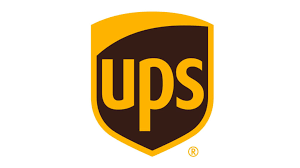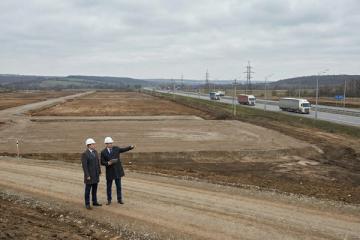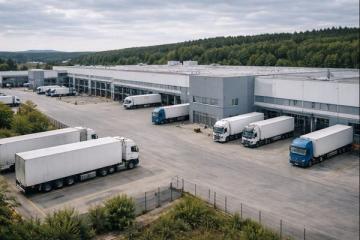
UPS (NYSE:UPS) today announced fourth quarter 2017 earnings.
“We achieved our 2017 adjusted earnings-per-share target through exceptionally strong revenue and yield growth, coupled with benefits from our network investments and portfolio initiatives,” said David Abney, UPS chairman and CEO. “We made significant progress on key capacity investments in 2017. Our momentum, transformative actions and the economic catalyst from the Tax Cuts and Jobs Act (TCJA), position UPS for growth in 2018 and beyond. We expect to unlock significant resources, which will be available for accelerated investments in our network and create additional opportunities for our people.”
Consolidated Results
4Q 2017
Adjusted
4Q 2017
4Q 2016
Adjusted
4Q 2016
Revenue
$18,829 M
$16,931 M
Operating profit (loss)
$1,494 M
$2,294 M
$(428) M
$2,223 M
Diluted earnings (loss) per share
$1.27
$1.67
$(0.27)
$1.63
Fourth-quarter 2017 GAAP results include a benefit of $0.30 per share attributable to the TCJA. In addition, results include a mark-to-market (MTM) non-cash, pre-tax pension charge of $800 million which represents an after-tax charge of $0.70 per diluted share. In the prior-year period, the company reported non-cash, after-tax charges of $1.90 per diluted share related to mark-to-market pension charges.
For the total company in 4Q 2017:
- Revenue increased 11.2%; currency-neutral revenue was up 10.9%.
- 4Q 2017 diluted EPS of $1.27; adjusted diluted EPS of $1.67.
- During the quarter, the company delivered 1.5 billion packages, up 5.7% over last year.
- Record deliveries for Peak Season of 762 million, materially above last year and over plan.
U.S. Domestic Segment
The Domestic segment is transforming its network to take full advantage of structural changes in the direct-to-consumer market. Demand for UPS Ground rose in the fourth quarter with volume growth of 5.7% and revenue of 9.3%. Premium Next Day Air shipment growth continued to be strong at 4.9% as customers selected faster delivery options. However, bottom line results were muted by additional peak operating expenses due to cyber-period volume surges and short-term costs related to capacity projects yet to come on-line.
4Q 2017
Adjusted
4Q 2017
4Q 2016
Adjusted
4Q 2016
Revenue
$11,835 M
$10,913 M
Operating profit (loss)
$627 M
$1,264 M
$(570) M
$1,338 M
For the U.S. Domestic segment in 4Q 2017:
- Revenue increased $922 million or 8.4% over 4Q 2016, driven by Deferred Air and Ground.
- Revenue per piece increased 2.9%, as higher base-rate pricing and fuel surcharges offset headwinds from customer and product mix.
- Shipments surged beyond network capacity during Cyber-periods driving additional operating cost of $125 million.
- Saturday operations provided additional capacity and flexibility during the quarter.
- Operating profit includes additional expense from investments in new technology, customer solutions and automated capacity expansion of about $60 million.
- Adjusted operating profit excludes the MTM pension charge.
International Segment
“Our International segment has generated four consecutive quarters of double-digit export growth,” said Abney. “That execution, combined with our growth strategy and the investments we’ve made over the last three-and-a-half years, produced results that exceeded expectations.”
4Q 2017
Adjusted
4Q 2017
4Q 2016
Adjusted
4Q 2016
Revenue
$3,753 M
$3,335 M
Operating profit
$725 M
$760 M
$281 M
$706 M
For the International segment in 4Q 2017:
- The segment reported revenue growth of 13% driven by premium products.
- Export shipment growth surged 16% per day. All regions of the world contributed to the expansion.
- 4Q 2017 operating profit was $725 million; 4Q adjusted operating profit increased 7.6% to $760 million, the result of broad, accelerated growth combined with expanded yields.
- Adjusted operating profit excludes the MTM pension charge.
- Currency-neutral operating profit increased 19% on an adjusted basis.
Supply Chain and Freight Segment
The Supply Chain and Freight segment produced record full-year and fourth-quarter results with double-digit expansion in both revenue and adjusted operating profit. Improved market conditions combined with revenue-quality improvements and structural cost-reduction programs produced strong results.
4Q 2017
Adjusted
4Q 2017
4Q 2016
Adjusted
4Q 2016
Revenue
$3,241 M
$2,683 M
Operating profit (loss)
$142 M
$270 M
$(139) M
$179 M
For the Supply Chain and Freight segment in 4Q 2017:
- Revenue increased 21% over 4Q 2016, the result of deeper alignment with preferred customers, strengthened revenue management initiatives and improved market conditions.
- Tonnage gains in Freight Forwarding, UPS Freight and Coyote Logistics contributed to improved top-line results.
- 4Q 2017 operating profit of $142 million; adjusted operating profit was $270 million.
- Adjusted operating profit excludes the MTM pension charge.
Full-year 2017 Consolidated Results
- Total revenue increased 8.2% to $65.9 billion on shipment growth and yield expansion.
- Full-year 2017 diluted EPS of $5.61; adjusted diluted EPS was $6.01.
- Adjusted diluted EPS excludes the impact of both MTM pension charge and TCJA income tax benefit.
- Company made capital expenditures of $5.2 billion during the year.
- Paid dividends of $2.9 billion, an increase of 6.4% per share over the prior year.
- Repurchased 16.1 million shares for approximately $1.8 billion.
Outlook
The company provides guidance on an adjusted (non-GAAP) basis because it is not possible to predict or provide a reconciliation reflecting the impact of future pension mark-to-market adjustments or other unanticipated events, which would be included in reported (GAAP) results and could be material.
“Our growth opportunities are accelerating,” said Richard Peretz, UPS chief financial officer. “The strong economic outlook and UPS’s high return on invested capital generates a unique opportunity to create additional long-term value by increasing capital investments. These investments enable UPS to execute our strategy and we are well-positioned for 2018 and beyond.”
- UPS expects 2018 adjusted diluted earnings per share to be in a range of $7.03 to $7.37, which includes about $200 million of additional pre-tax pension expense due to lower discount rates.
- Our guidance includes TCJA benefits that will increase net income and cash flow.
- Capital expenditures planned between $6.5 billion to $7.0 billion, mostly dedicated to investments in new technology, aircraft and automated capacity.




